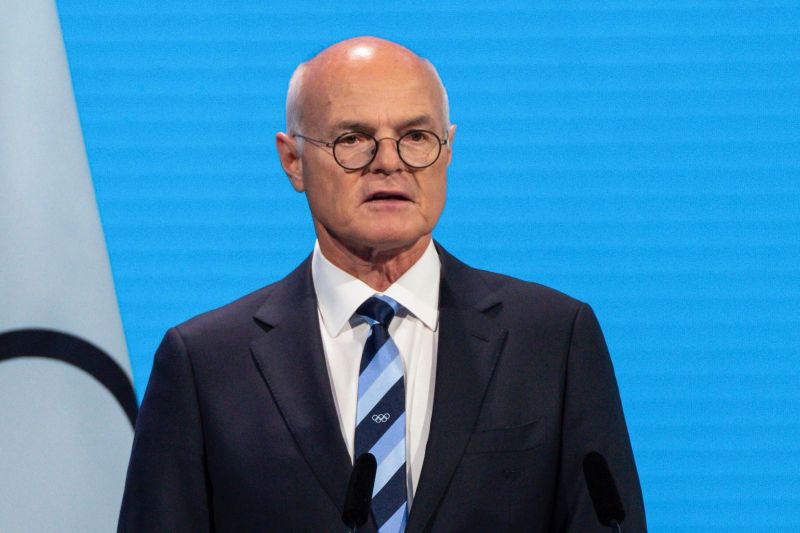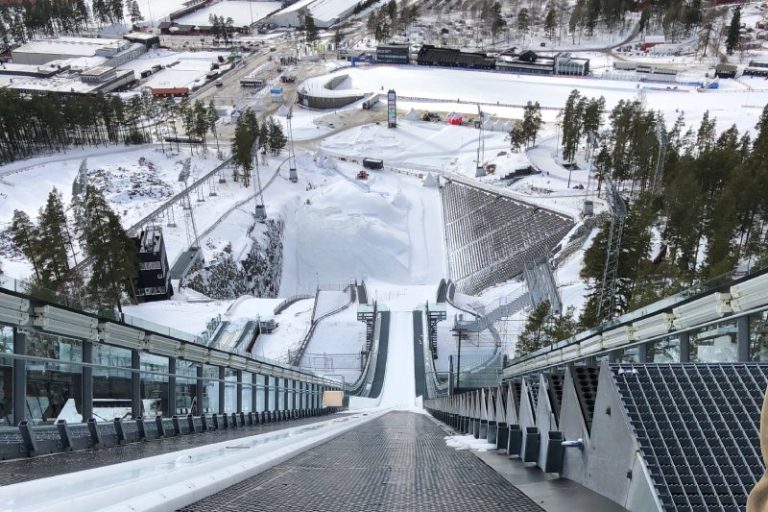Romanian International Olympic Committee (IOC) member Octavian Morariu stepped down as chair of the Future Host Commission for the Olympic Winter Games, the IOC announced Friday, to comply with conflict-of-interest rules set by the organization.

That same set of rules could also upend the desired host city election schedule previously proposed by the IOC.
Morariu’s decision came after it was announced Tuesday that the French regions of Auvergne-Rhône-Alpes and Provence-Alpes-Côte d’Azur joined to bid for the 2030 Winter Games, and the project was presented to the IOC by the French National Olympic Committee (CNOSF). Morariu, who had held the position since the commission was formed in 2019, is also a French national.
Morariu was responsible for leading the group that conducts ongoing dialogue with interested bidders and he reports to the IOC Executive Board providing important recommendations that could lead to regions being chosen for a ‘targeted dialogue’ and appearing on the final host election ballot at an IOC Session.
Austrian IOC member Karl Stoss who was already a member of the commission has been named as the replacement.
The French bid could have an even more significant impact if the proposal wins the praise of the Commission and is chosen for targeted dialogue by the Executive Board later this year – possibly in October or December according to IOC executives. IOC Executive Director Christophe Dubi has projected that the final election for 2030 would take place in Paris at the Session scheduled just days before the opening of the 2024 Olympics, allowing just a little more than five years to organize the Winter Games.
But with the French Alps in the race, a Paris election would not be possible, according to the Olympic Charter that states “The election of the host of the Olympic Games takes place in a country having no candidature for the organisation of the Olympic Games concerned.”
The next scheduled Session would not be until the middle of 2025 in Athens, Greece where the significant agenda item will be the election of IOC President Thomas Bach’s successor after the conclusion of his maximum two terms. The IOC does have the option of scheduling an extraordinary Session in the interim.
Olympic Charter Rule 33, Number 4: The election of the host of the Olympic Games takes place in a country having no candidature for the organisation of the Olympic Games concerned.
In the past, Sessions have been relocated to accommodate bidders that submitted applications after their National Olympic Committee was already chosen to host the official annual gathering of the IOC membership. The IOC Session in 2019 was moved from Milan after Italy’s joint Milan-Cortina 2026 Winter Games bid entered the race and eventually defeated Stockholm-Åre in an election that was hosted in Lausanne, Switzerland instead.
But the Paris Session cannot be relocated as it is attached to the scheduled 33rd Olympic Games where all the members will be gathering ahead of the opening ceremony. In the past, such conflicts were avoided by scheduling host elections at Sessions during non-Olympic years. Now, under bidding reforms, there is no set timetable for the Olympic bid process, and elections are scheduled when the Executive Board deems it appropriate.
Scheduling will only be a problem if the bid is chosen for targeted dialogue by itself or among other candidates vying to host in 2030. The IOC is also exploring the option of choosing both 2030 and 2034 hosts during the Paris Session, and making decisions about the possibility of permanent rotating Winter Games sites.
When asked for clarification by GamesBids.com, an IOC spokesperson downplayed any concerns noting in a statement “This is pure speculation.”
“At this point the IOC Executive Board has not opened a Targeted Dialogue with the French NOC and their project, or any other potential host for the Olympic Winter Games, so as things stand the question is completely hypothetical.”
The statement did not address what could result if the French project, as the bid intends, is selected for targeted dialogue – or if this potential conflict will present a bias against the joint bid.
Currently Sweden, Switzerland and now France are discussing 2030 Winter Games bids with the IOC. Salt Lake City is aiming for the 2034 edition but U.S. officials have offered to step in and host in 2030 if the IOC has no other options. Both Japan and Canada remain in discussions for a future Winter Games after they had explored 2030 bids but were forced to step back due to domestic issues.
It will be up to new Commission Chair Stoss and his team to decide whether the bid from France, or others, will be recommended for targeted dialogue.
President Bach said in a statement “Karl Stoss brings with him huge experience of winter sports, coming as he does from one of the leading winter sports nations in the world.”
“Under his chairmanship, the Commission will be in very safe hands as we continue the dialogue with a number of potential hosts for the Olympic Winter Games 2030 and beyond.”
Other Commission members stepped down earlier this year to comply with the same conflict-of-interest rules including Sweden’s Gunilla Lindberg after her nation entered into continuous dialogue and Latvian Einars Fogelis who took temporary leave due to the possible inclusion of the Latvia’s Sigulda sliding track in Sweden’s proposal.
[Editor’s Note: This story has been updated with IOC reaction.]


